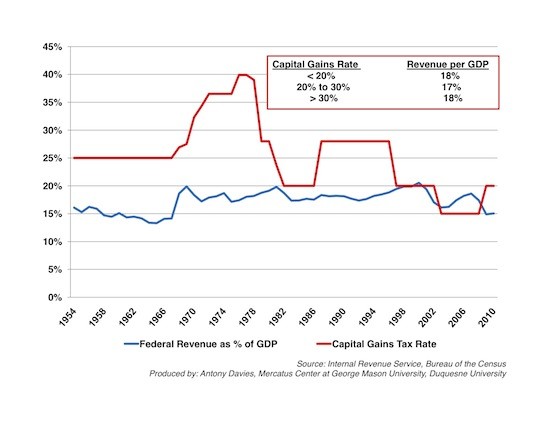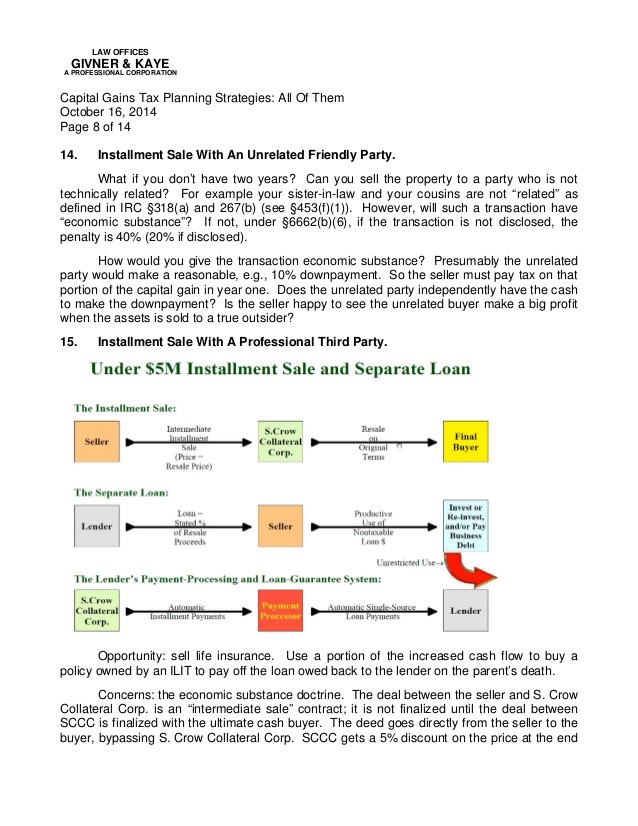Capital Gains Tax Within a Corporation
Post on: 15 Июнь, 2015 No Comment

A s I have setup a corporation to hold my online business, Im learning the ins and outs of how taxes work within a corporation . More specifically, how to effectively extract money from a corporation in a tax efficient manner. For example, the dividend sprinkling strategy allows effective income splitting for shareholders within the family.
One thing Ive recently been curious about is investing within a corporation and the resulting taxation. More specficially, resulting capital gains when selling investments or assets. Capital gains within a corporation works similarly to capital gains taxed personally but with notable exceptions. The difference lies in the type of capital gains. Capitals gains coming from the sale of capital assets that produce active income are taxed more favorably than capital gains from investments behind a corporation.
If active income generating assets are sold (like a website within a media company), 50% of the profit is added as income to the corporation. If the resulting corporate income for that year is within the small business rate threshold (16% in NL), then the overall taxation on the capital gain is 8%. If investments are sold for capital gain, then the tax rate is higher. 50% of the profit in this case is taxed at the highest corporate rate (
50%), which will result in a
25% tax on the gain.
One thing you may be wondering is what happens to the 50% that is not taxable? To put it simply, that portion can be flowed through to shareholders tax free.
Here are more specifics from Tax Guy:
One of the dilemmas corporate business owners have is how to effectively get money out of the corporation.
If your corporation sells capital property, the gain is subject to the 50% inclusion rate. The 50% that is not taxed is added to a notional tax account called the Capital Dividend Account (CDA). You can then pay yourself a tax free capital dividend from the CDA.
I have another question if you have a moment. If I were to invest behind a corporation, I understand that dividend/interest income from those investments are taxed at a higher rate. However how do capital gains work within a corporate investment account? I realize that 50% is taxable on the capital gains, but at what rate? If my business qualifies for the small business deduction, and gets taxed @ 16% (in NL), does that mean that 50% of my profit gets added to corporate income and taxed at 16%? What happens to the other 50% of the profit thats not taxable? Can shareholders withdraw it?
If the corporation sells property used in the production of active business, the rate of tax is effectively 8% (on the full gain). On the other hand if the corporation has passive investments (i.e. stocks and bonds), the tax rate is 1/2 of the maximum rate for a corporation or 24.34%.
As an example, if you sold investment held personally, that has a cost of $10,000 and a market value of $15,000, the tax on the capital gain would be $1,112.50 (22.25% of $5,000 assuming you are in the top marginal rate and the investment sold is passive). Your after tax gain is $3,887.50.

On the other hand, assume your corporation holds the same passive investment and sells it and flows the profits to you as a shareholder. The corporation has a gain of $5,000 of which $2,500 is taxable at 48.67% ($1,216.75) and the other half is added to the Capital dividend account. You can see the corporation paid $104.25 more tax.
At this point, if you were to flow this money out of the corporation, the capital dividend would be paid to your tax free and you would pay out the remaining $1,283.25 as an ineligible dividend to which you pay 32.17% on.
After flowing these funds into the shareholders hands, the after tax gain is $2,500 capital dividend paid, plus $1,283.25 ineligible dividend, less $419.75 personal tax on the ineligible dividend. Or $3,363.50.
So you can see, by slowing out the investment income, you end up paying $524.00 more tax. Now keep in mind, that is assumes you need to flow the income out. You could retain the income in the corporation and continue to pay slightly higher tax on the investment income at 48.67% than you would personally and avoid an immediate tax hit by flowing out the income.
The strategy many corporation take is to either invest accumulated cash back into the business to produce active business income. When excess cash is accumulated (i.e. more than 10% of your assets) it eliminates your ability to qualify for the personal capital gains deduction and you need to consider flowing the money out via the CDA or by rolling out the excess cash to a holding company.
Other ways to get cash out of a corporation are via the estate plan and using a universal life policy.
So for those of you with corporations, do you have any other tax tips for me?














